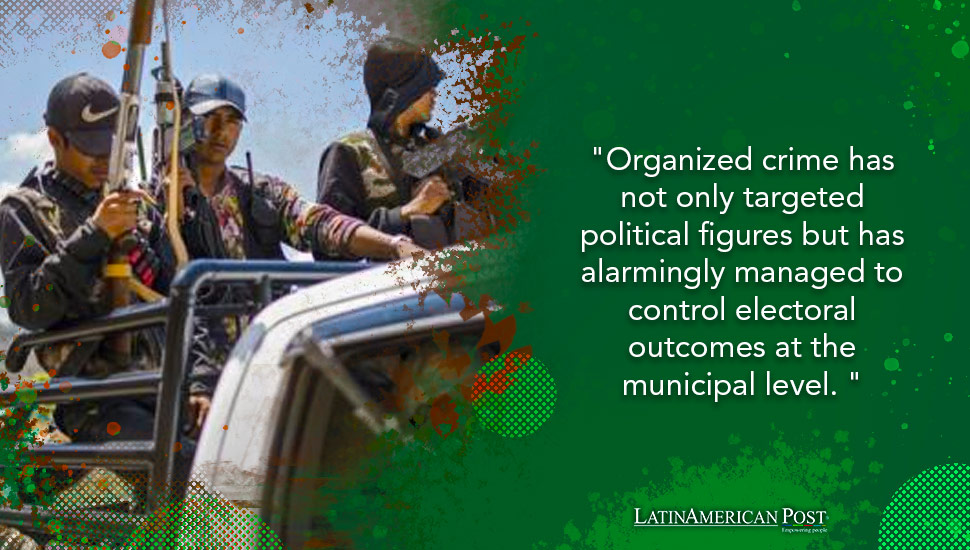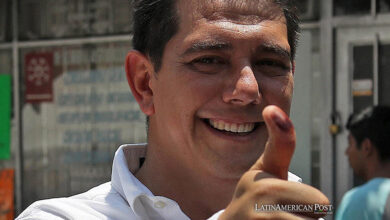Shadows Over Democracy: Organized Crime’s Grip on Mexican Elections

As organized crime infiltrates municipal elections in Mexico, voter intimidation and electoral manipulation deepen the crisis of democracy, impacting not just local governance but echoing across Latin America.
The troubling nexus between organized crime and political processes in Mexico has increasingly become a focal point for both local and international observers. The report titled “Democracy Compromised: Organized Crime in Elections and Public Administration in Mexico,” presented by Data Cívica, México Evalúa, and Animal Político, sheds light on this dire issue as the country approaches a significant election.
Rising Influence of Organized Crime
Organized crime has not only targeted political figures but has alarmingly managed to control electoral outcomes at the municipal level. This influence is starkly reflected in the data collected since 2018, documenting attacks on public figures by criminal groups. Between 2018 and 2023, an overwhelming 77% of the victims were candidates or officeholders at the municipal level. This data underscores a disturbing trend: local governments, crucial for immediate public services, are the most susceptible to criminal control.
Organized criminals’ focus on municipal targets isn’t arbitrary. It is a calculated effort to construct territorial dominion, one locality at a time, thereby asserting control over entire regions. Despite national strategies to combat organized crime led by the federal government, the real battle is unfolding in Mexico’s towns and cities.
Sandra Ley, the security program coordinator at México Evalúa, emphasized the escalating nature of this process. The intent, she noted, is clear: to influence local politics increasingly over time. This trend has manifested in a stark increase in violence—attacks on candidates and elected officials have nearly tripled in the past five years compared to the period from 2006 to 2012.
Impact on Democratic Process
This rising tide of violence casts a long shadow over the democratic process. Voter perceptions of safety drastically alter their willingness to participate in elections. This is evident from the analysis of the 2018 and 2021 elections, where political attacks correlated with a significant drop in voter turnout. For each official attack, voter participation reportedly dropped by three percentage points. The murder of a candidate alone led to a 1.3 percentage point decrease in voter turnout and nearly a 1% increase in election-day staffing issues.
The impact of organized crime on democracy extends beyond overt violence. In regions without visible violence, criminal groups can still manipulate election outcomes silently, influencing or even determining the results. Ernesto Núñez of Animal Político highlighted this less conspicuous but equally destructive form of interference, which can lead to atypical voting patterns and manipulation at polling stations.
These findings have profound implications for Mexico and resonate throughout Latin America, where similar patterns of crime and political interference can destabilize regional democracies. The stakes could not be higher as Mexico gears up for its most significant elections in history, with over 97 million people called to renew approximately 200,000 public offices.
Urgent Need for Action
The report concludes with a call for urgent measures to prevent and address this electoral violence. Yet, the current response from authorities, including a recently issued security protocol for candidates by the National Electoral Institute, must catch up. It notably overlooks the majority of those at risk: municipal candidates.
As Mexico and other Latin American countries grapple with the entrenchment of organized crime within their political fabric, the broader implications for democracy are clear. Without concerted efforts to protect candidates, ensure voter safety, and cleanse the political process of criminal influence, democracy itself remains at risk.
Also read: Security, Talent, and Green Energy Key to Boosting Investment in Mexico
This troubling scenario requires not just national but international attention and action. Addressing the menace of organized crime is no longer just about law enforcement but about safeguarding the fundamental democratic principles that support fair and free elections. As we observe the unfolding events in Mexico, it serves as a poignant reminder of the fragility of democracy and the pressing need to fortify it against all forms of subversion.




